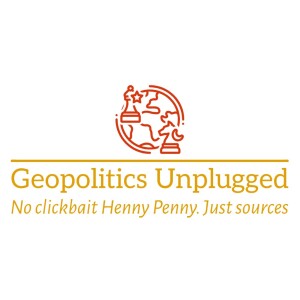
Wednesday Oct 23, 2024
EP 28: BRICS viability and SWIFT

Summary:
The source criticizes the BRICS (Brazil, Russia, India, China, and South Africa) alliance, arguing that despite its goals of challenging Western financial institutions like the World Bank and IMF, its members are too diverse in their economic philosophies to achieve a unified vision. The source emphasizes the crucial role of the SWIFT (Society for Worldwide Interbank Financial Telecommunications) network in facilitating international financial transactions and argues that without a viable alternative to SWIFT, BRICS initiatives like BRICS Pay and BRICS Bridge, which are still in their theoretical stages, are unlikely to be successful. The source describes SWIFT as a vital part of the global payment system, enabling secure communication for international money transfers and facilitating global economic activity.
Questions to consider as you read/listen:
- What are the key challenges and opportunities facing the BRICS nations in their efforts to establish a global payment system that rivals SWIFT?
- How does the reliance on SWIFT impact the global economy, and what are the potential implications of a shift to an alternative system?
- What are the political and economic motivations behind the BRICS nations' pursuit of an alternative to SWIFT?
Long format:
BRICS viability and SWIFT
Right now from October 22 thought October 24, 2024, BRICS countries are holding their conference in Kazan in the Russian Federation
Whenever I hear about BRICS, I cannot help but scroll. Here’s why.
For those who may not know (and apologies for those that do) BRICS is an acronym for Brazil, Russia, India, China, and South Africa.
BRICS was created to “counterbalance the influence of Western-dominated institutions like the World Bank and the International Monetary Fund (IMF).”
Those 5 countries are culturally very very different countries with entirely different views of capitalism and the role of the state and how currency or economics should be managed. For them to come to consensus other than “we should do something” is well a bit outside my wildest optimism.
One could stop there, but I don’t because I want to be fair.
But let’s suspend our disbelief for a moment and suppose that they will come to a consensus of how this new thing ought to work and what it should look like. They still have a major problem in that there is no alternative to the SWIFT system. Until they have developed one that exists in reality and is appealing to the rest of the rest of the world or even each other, I will scroll when I see BRICS.
For those who do not know, the Society for Worldwide Interbank Financial Telecommunications (SWIFT) is a secure messaging network that banks and other financial institutions use to send and receive information, primarily for international money transfers. SWIFT is a vital part of the global payments system, but it doesn't hold funds, issue or manage accounts, or settle transactions. SWIFT is a member-owned cooperative that allows banks to send and receive encrypted messages about international transactions. Today, SWIFT is used by more than 11,000 banking institutions in over 200 countries. SWIFT helps banks comply with international regulations and regulators use it to track illicit activities. SWIFT has been used in international sanctions, such as US sanctions against Iran. It is how we make global and even within country transfers happen. Without it, the system does not work.
To put it mildly, without the SWIFT system, the global economy would likely be significantly disrupted, with international transactions becoming much more complex, time-consuming, and expensive, essentially resembling a world where cross-border payments are significantly hampered, potentially causing economic instability due to the lack of a standardized communication system for banks to facilitate transactions across borders; it would be akin to trying to operate without the internet in the financial world, making it extremely difficult for businesses and individuals to move money internationally with ease and security.
I understand that some folks within or without BRICS have supposed alternatives like BRICS Pay or BRICS Bridge of a Distributed Ledger Technology, but it is not even in prototype let alone available let alone widely accepted.
BRICS pay is a theoretical blockchain-based system that aims to make trade between BRICS nations seamless and allow real-time transactions. BRICS Pay could enable members to use a specific currency amassed in one country to trade with another.
BRICS Bridge is a payment and settlement platform that would allow member states to transfer money directly. The system would be based on three currencies: the digital ruble, Chinese yuan, and Brazilian real. Again in theory. No prototype.
So BRICS=scroll in my book…. for now
Source:
No comments yet. Be the first to say something!